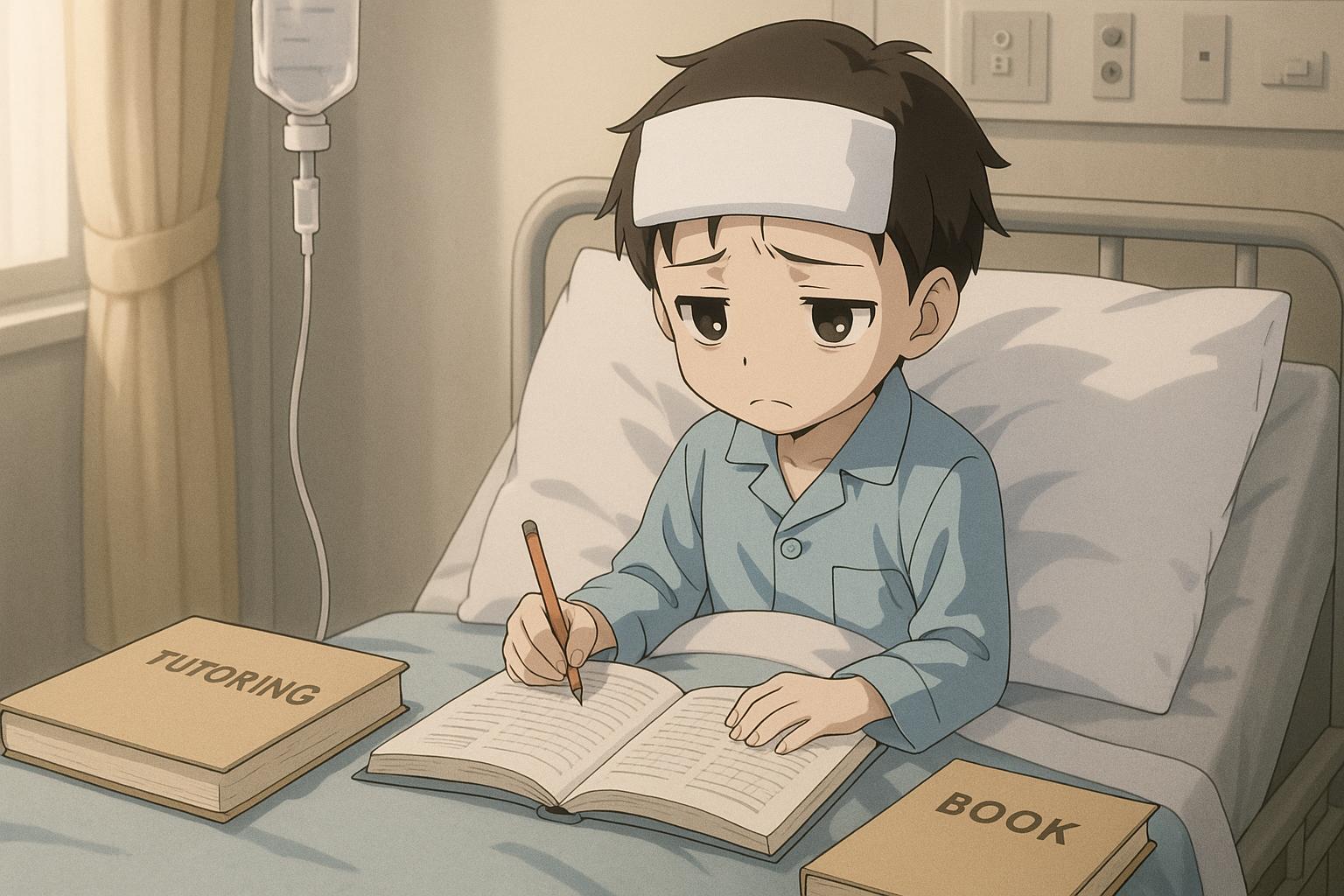Sick children at one of Scotland's leading children's hospitals are facing a stark educational inequity, with those attending private schools being denied free tutoring services offered to their state-school counterparts. At the Royal Hospital for Children and Young People in Edinburgh, parents of children, including cancer patients, have been informed that they must pay £115 per hour for one-to-one tutoring, while those in state education receive this service at no cost. This policy has ignited considerable outrage among families who feel it discriminates against their children during vulnerable times.
In the same hospital, parents have witnessed other children in neighbouring beds receiving the educational support their own children are barred from. One mother described the emotional toll as her son, who was undergoing chemotherapy, had to endure extended hospitalisation without educational resources. “When they realised he went to a private school, they told us there was a problem,” she recounted, emphasising that the family felt they were being punished for their choice of education.
The decision has been backed by local council officials, who argue that it aligns with Scottish Government guidelines. However, this rationale raises questions when compared to practices in other hospitals, such as Great Ormond Street Hospital in London, where children from all backgrounds are afforded equal access to educational support. Dr Lynne Binnie, Head of Education (Inclusion) for the council, stated that families have 'effectively opted out of state-funded education' by choosing private schooling. This strict adherence to policy has been perceived as a political stance rather than a compassionate response to the needs of seriously ill children.
Compounding the issue is a backdrop of ongoing financial pressures faced by Edinburgh City Council, which is contemplating cuts of £4 million to services aimed at supporting vulnerable children. Such cuts could further strain educational resources for sick children, leaving families concerned about the continuity of support amid lengthy hospital stays. Campaigners fear that these reductions could lead to severe gaps in educational provisions, exacerbating the already fraught situation.
Interestingly, while Edinburgh grapples with these issues, other regions in Scotland appear to be navigating similar challenges differently. For instance, in Glasgow, educational support is provided without additional charges, with local authorities recovering costs afterward—a model that highlights the disparity in approach across the country. This discrepancy raises critical questions about the principles of equity and access in education, particularly for children facing serious health challenges.
In light of these differing policies, Shadow Cabinet Secretary for Finance, Craig Hoy MSP, has expressed his intention to raise the concerns surrounding the Edinburgh hospital's practices in the Scottish Parliament. He urged that councils should not impose what he described as 'punitive charges' on sick children, advocating for a reevaluation of how educational support is structured across the state's healthcare facilities.
Overall, the situation at the Royal Hospital for Children and Young People has sparked a wider conversation about the access to education for vulnerable children, the implications of policy decisions on their well-being, and the ongoing need for inclusive practices that honour each child's right to learn—no matter their educational background. As developments unfold, the hope remains that all sick children can receive equitable educational support, allowing them the continuity of learning they so desperately need during challenging times.
Reference Map:
- Paragraph 1 – [1], [4]
- Paragraph 2 – [1], [2], [6]
- Paragraph 3 – [2], [5]
- Paragraph 4 – [3], [6]
- Paragraph 5 – [1], [3], [7]
- Paragraph 6 – [1], [6]
Source: Noah Wire Services
